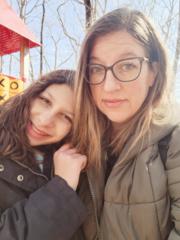Jan 15 • Healing & Growth
Forgiveness: The Hidden Key to Emotional Freedom
Where are you with forgiveness? Not the Hallmark version of it, but the raw, transformative act that can feel like a battle with your own soul. Let’s go deeper.
Forgiving Others
Think about the people who’ve hurt you, truly hurt you. Maybe they left scars, some visible, others etched into your mind. Society tells us to "forgive and forget," but let’s be real, forgetting isn’t always possible, nor is it the point. Forgiveness isn’t about excusing the harm or letting someone off the hook. It’s about freeing yourself from carrying the heavy chains of resentment, anger, and pain. These emotions can weigh on your mental and physical health like an anchor tied to your spirit.
Forgiving someone who doesn’t deserve it is an act of rebellion. It says, You don’t own me anymore. Your actions no longer control myy emotions.
Forgiving Yourself
Now, flip the mirror. What about the person staring back at you? Are you carrying shame, regret, or or guilt for choices you made, words you spoke, or moments you lost? Forgiving yourself might feel harder than forgiving others because you’re both the victim and the perpetrator in this inner conflict.
But here’s the truth, holding onto self-blame keeps you trapped in the past. When you forgive yourself, you give permission to live fully in the present. Self-forgiveness is self-respect. It’s the courage to say, I made mistakes, but they don’t define me.
Daily Forgiveness
Forgiveness isn’t a one-time event. It’s a daily practice. Every day, people cut up in traffic, make hurtful comments, or let us down in big and small ways. The choice to forgive daily is like mental hygiene, it keeps resentment from building up like plaque.
Forgiveness isn’t just spiritual, it’s biological. Studies show it can reduce stress, improve heart health, and even boost your immune system. It’s a superpower hiding in plain sight.
A Practical Exercise: The Forgiveness Letter
Here’s a simple, transformative exercise you can try
1. Choose a Person or Yourself: Think of someone who hurt you or something you’ve struggled to forgive in yourself.
2. Write a Letter: Without filtering, write everything you want to say. Get raw. Write the anger, the sadness, the disappointment. Then shift to forgiveness. Write, I forgive you because I deserve peace. I release this pain to heal myself.
3. Destroy or Keep the Letter: You can burn, shred, or keep it. The act of writing and releasing is the healing step, not whether they ever see it.
Where Are You With Forgiveness?
What’s holding you back from forgiving someone or yourself? Do you feel like forgiving daily is a burden or a gift? If forgiveness is freedom, what would it take for you to unlock the door?
Let’s talk about it. Share your thoughts below,I’d love to hear your perspective.
Share Your Spark 💥
Danny
1
3 comments

skool.com/dannys-way-stepping-stones-1756
"Danny's Way is about finding your way—a supportive space to heal, grow, and uncover your inner strength with actionable steps and real results."
Powered by





